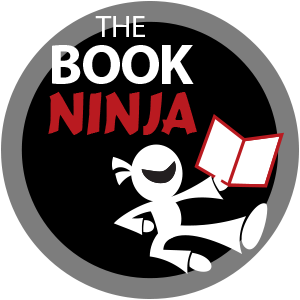If you self-published your book through a vanity self-publishing services company like Lulu, CreateSpace, iUniverse or Authorhouse, you may be hitting a road block to getting your book into bookstores. Many authors purchase an additional “expanded distribution” option from these companies and still cannot get a bookstore to stock their books. Why?
“Expanded distribution” usually means your book becomes available on the bookstores’ websites only. This means the vanity publisher will send a listing of your book to be included for sale online, not on a brick and mortar bookstore shelf. Even if they claim you can get on the shelves through this distribution channel, there’s something else these companies are not telling you.
Their “expanded distribution” options only meet one requirement to get stocked on a bookstore shelf: listing in the retailers’ directories. There are many more requirements they do not meet, and even if they meet more than one, the magic to getting a bookstore to stock your book only happens when it meets all their requirements.
The other most common requirements vanity self-publishers do not meet are:
Price Point
Vanity publishers say you can set the retail price of your book. However, they always give you a minimum to cover the “print” cost and most of the time that minimum is marked up so they pocket a few dollars as well. If you paid them to publish your book and they’re making additional money off every book you sell, you are paying them now and paying them later. This pay-now-pay-later scenario sets your book up for instant failure as your price point won’t meet basic consumer guidelines and bookstores won’t be able to sell your book, so they’ll refuse to stock it.
Quality
Bookstores are used to showcasing a certain standard of quality on their shelves. This means they typically only stock books with quality content that are professionally edited, and books with professional cover designs and interior layouts. The sad fact is most self-published books don’t meet this standard of quality, so bookstores turn them down on first sight.
Discount
Distributors require a 55% off discount so they can give retailers their required 45-50% discount and still make some money themselves. This sets the price of the book even higher, which when combined with the publisher’s markup, can easily price it out of market range. If your book is listed in “expanded distribution” but does not have a 55% discount applied to it, you won’t see it stocked on a bookstore shelf.
ISBN
Mainstream bookstores have specific ISBNs “red flagged” in their systems. If your publisher applied their ISBN to your book, it has their name encoded in it, not yours. Bookstores can easily look at the ISBN and tell who published it. If the publisher is on their “red-flag” list, as most self-publishing (vanity) services companies are, your conversation with the bookstore rep will end faster than it started.
The only way to ensure you have all these primary points in place is to indie publish under your own label so you can control how your ISBN appears, your price point and discount, and have the power to choose a team of professionals that will not only give you the book you want, but a high quality book that bookstores will be proud to showcase.
Want to learn everything you could possibly ever want to know about book publishing? Join The Book Ninja Academy and start with our Publishing Ninja Signature Courses!
***
Photo Credit: Flickr, Eunice


Thanks, good advice, Edward Smith
Great post, Kristen. All of the conditions that you list here are necessary, not sufficient. That is, even if you adhere to all of this great advice, there’s no guarantee that a B&N will stock you book. I was able to break through with The New Small but it wasn’t easy.
Yes, unfortunately even traditionally published books that meet all B&N’s criteria are still subject to how the event planner is feeling that day. The bottom line is, if you do the things above, you’ll have a better chance of getting stocked. Then again, I still think bookstores are the worst places to sell books. 🙂